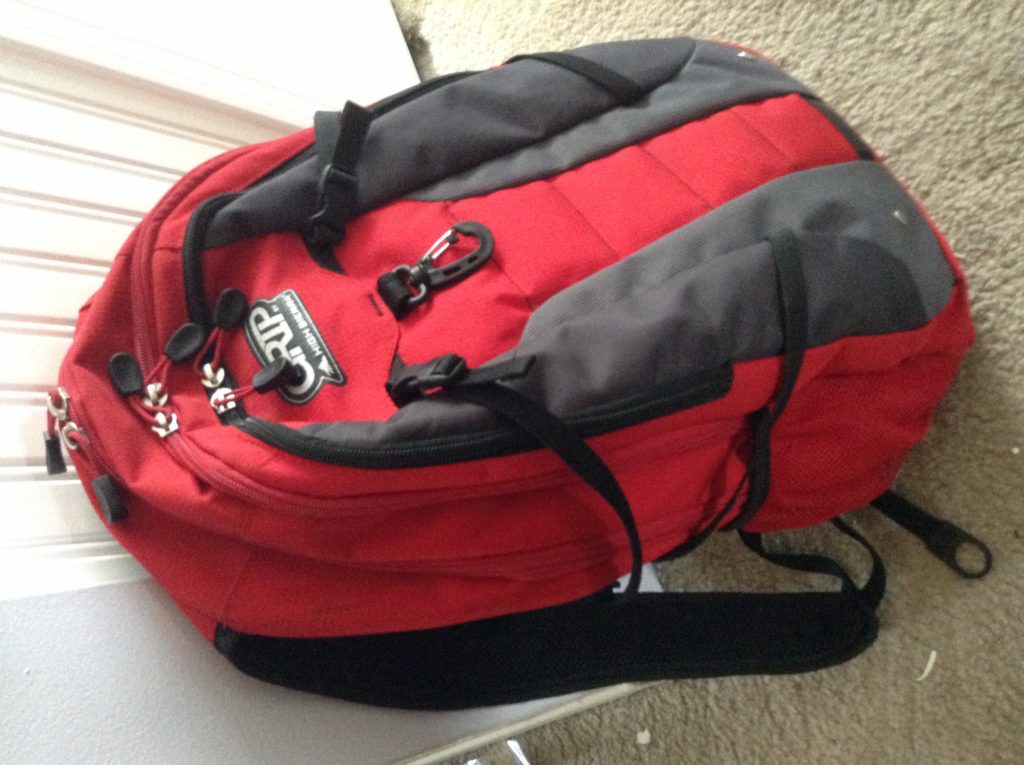
Again? He lost his backpack again? And he expects mom to buy him another one because… he’s cute, he has that plaintive little boy tone in his voice, because he exists?
The fact is he’s going to get a new backpack because this is a commercial for Ebates. Mom is getting rebates for all the shopping she does ( let’s save that for another time) and has money to burn, sort of.
Where do I begin? Here’s what came up:
– enabling
– not taking responsibility for self and possessions
– entitlement
– over-consumption
– inability to set limits
– fear of child’s reaction
– the value of money and hard work
– making assumptions
This one line said all of that. Admittedly, it pushed my buttons because he said “again”. But let’s face it, it isn’t just about a backpack. It’s about attitudes, expectations, fears and values. It’s what I write about and what I teach. Let’s dive in.
1. Enabling (parents) Whose problem is it when the child loses his backpack, again? His, of course. It’s time for mom to step back and let him experience the inconvenience of not having one.
2. Taking responsibility for yourself and your possessions (kids) (See ‘Enabling’) Knowing that someone will replace a lost or damaged item means you never have to worry about taking care of it, or living without it. That doesn’t bode well for this kid’s future.
3. Entitlement (kids) It’s an attitude that says, “I am, therefore I deserve.” When you indulge that, you feed the attitude and starve the growth of your children.
4. Over-consumption (kids and parents) As a society, we are accustomed to replacing things, whether it is warranted or not. Obsolescence, carelessness, or instant gratification, we do it. We also complain about finances, so there is a real disconnect here.
5. Inability to set and enforce limits (parents) You know kids need limits because a) the experts and research tell us so and b) you see and experience what happens when there are no limits. It’s not pretty. So what keeps you from doing it? See #6.
6. Fear of kids’ reactions (parents) Fear is the greatest motivator for, or hindrance to, doing what needs to be done. Perhaps you fear your child’s anger, a tantrum or explosion, or the dreaded “I hate you!” In other areas of your life you may be fearless. Tap into that courage and use it where it counts the most, with your kids. Remember, “I hate you” is a strategic maneuver on their part, and, unpleasant as it is, you will both live through the tantrum.
7. The value of money and hard work (kids and parents) You work hard for your money. Many of you remember working for what you had as kids, that things weren’t just handed to you. My parents provided what I needed. Sometimes what I wanted just wasn’t in the cards. So what changed? Is it really as simple as buying for your kids because you can afford it? You can’t guarantee their financial future, and they need to be prepared to make choices. Start preparing them now.
8. Making assumptions (kids and parents) In this commercial, the son has assumed (understandably) that mom will replace the lost backpack. Mom has also made some assumptions: that this is normal and how it’s going to be, that her son is incapable of functioning without the backpack, and that he’s not competent and she has to jump in and fix it for him. On a personal note, I’ve been the fixer, too. My son set me straight: when I lowered expectations (or asked to have them lowered for him at one time), what he heard was that I didn’t believe he was capable of achieving on his own. Instead of building self-esteem, I contributed towards lowering it. Some of you know what I’m talking about. Please spend a little time with this idea. Do it for your kids.
It is only a commercial. If you look below the surface, it’s a ‘teachable moment.’ There are so many messages we unknowingly send our children. Some are inspiring, others are not.
Look at the list again. What resonates with you? Which one makes you uncomfortable? Pay attention to it. Do it for your kids. My tag line is “helping parents raise responsible, respectful teens who are ready to launch” and I sign off on my messages with “Be well, be strong, be a courageous parent.” If you need some help with that, you know how to find me.

Great article – very insightful. Agree that even though it’s just a commercial, it is indicative of what we seem to do as parents and should stop.